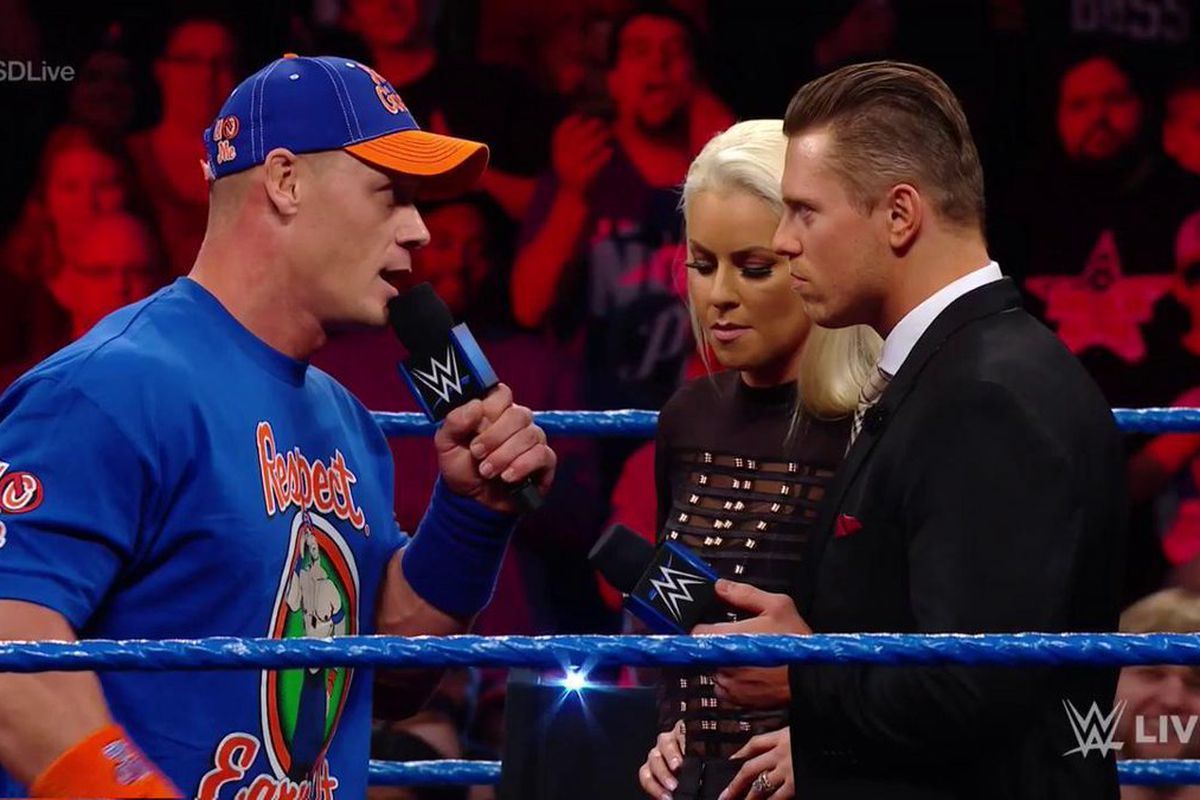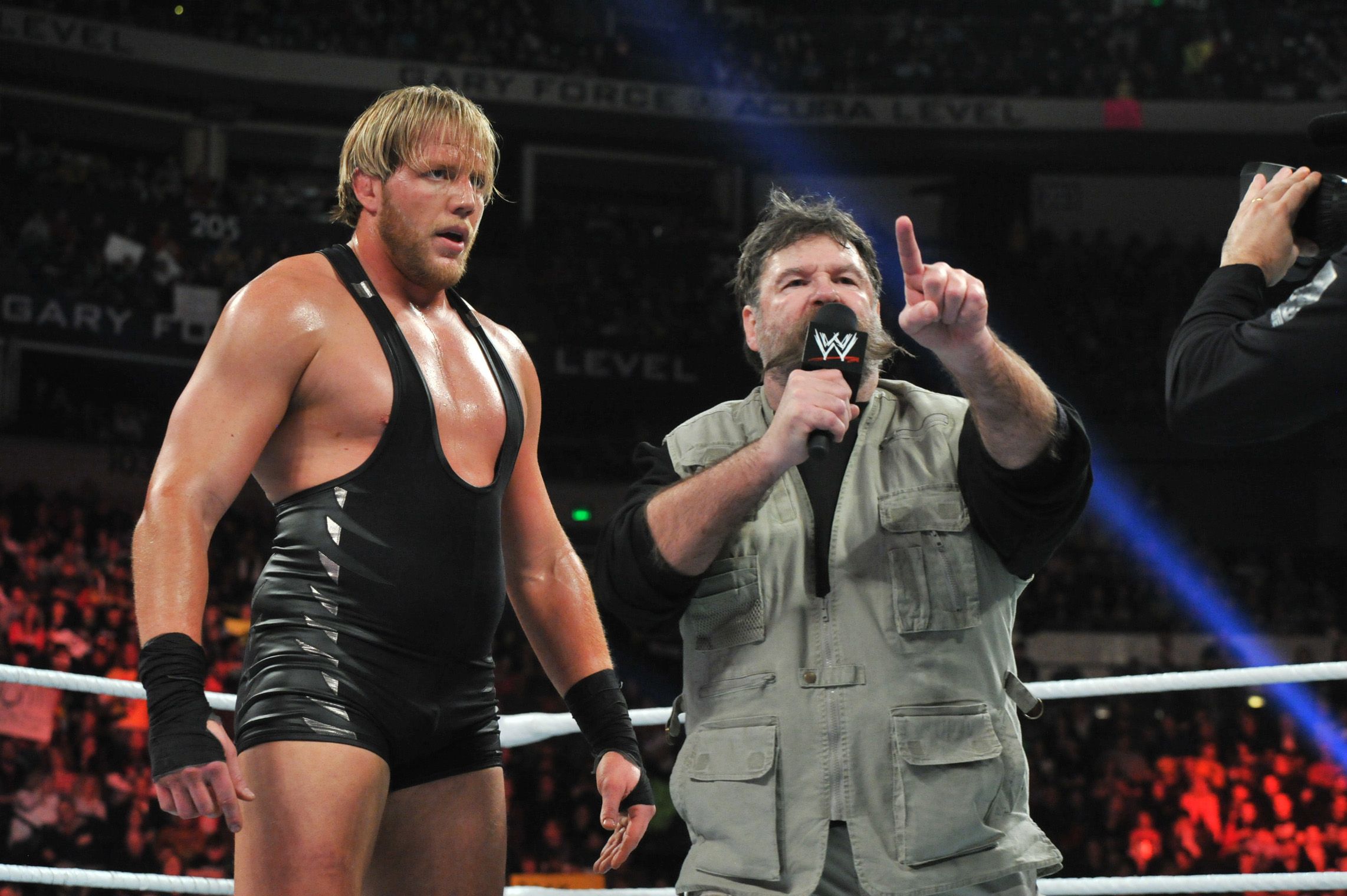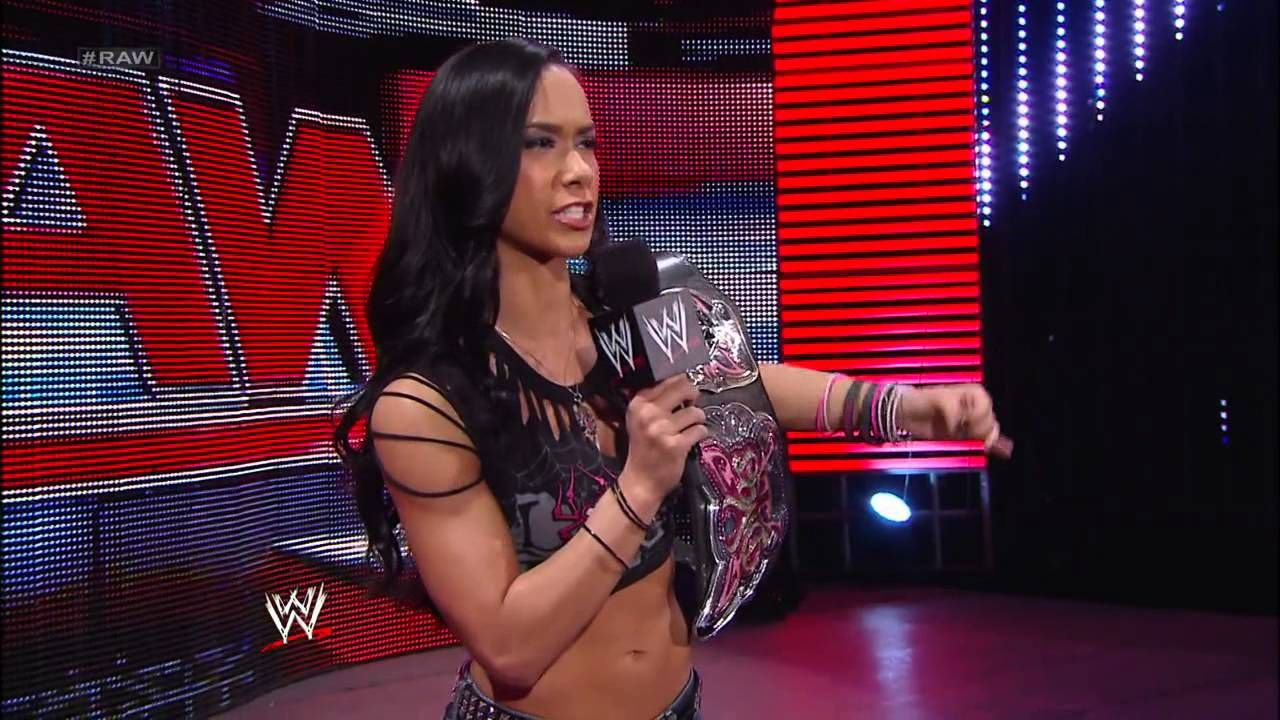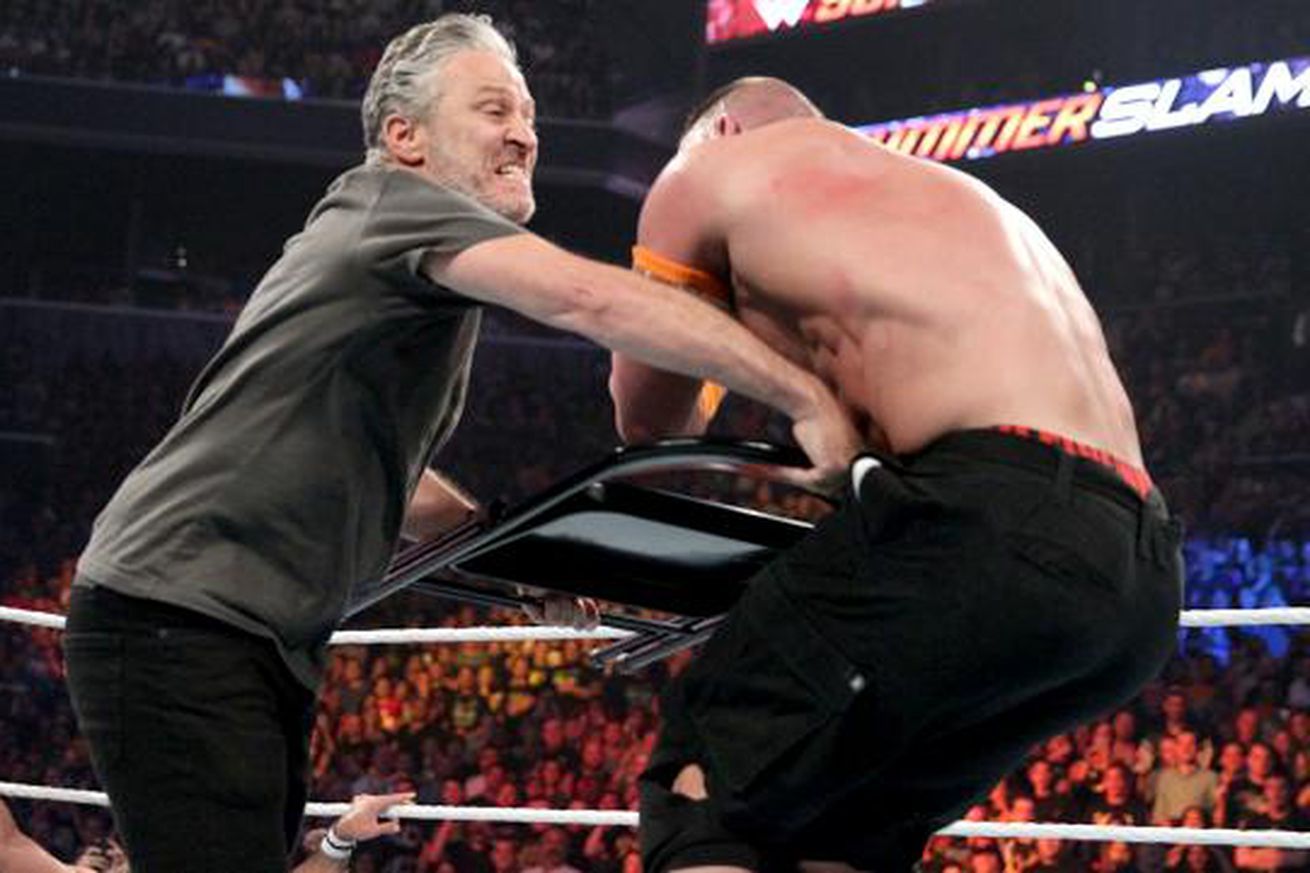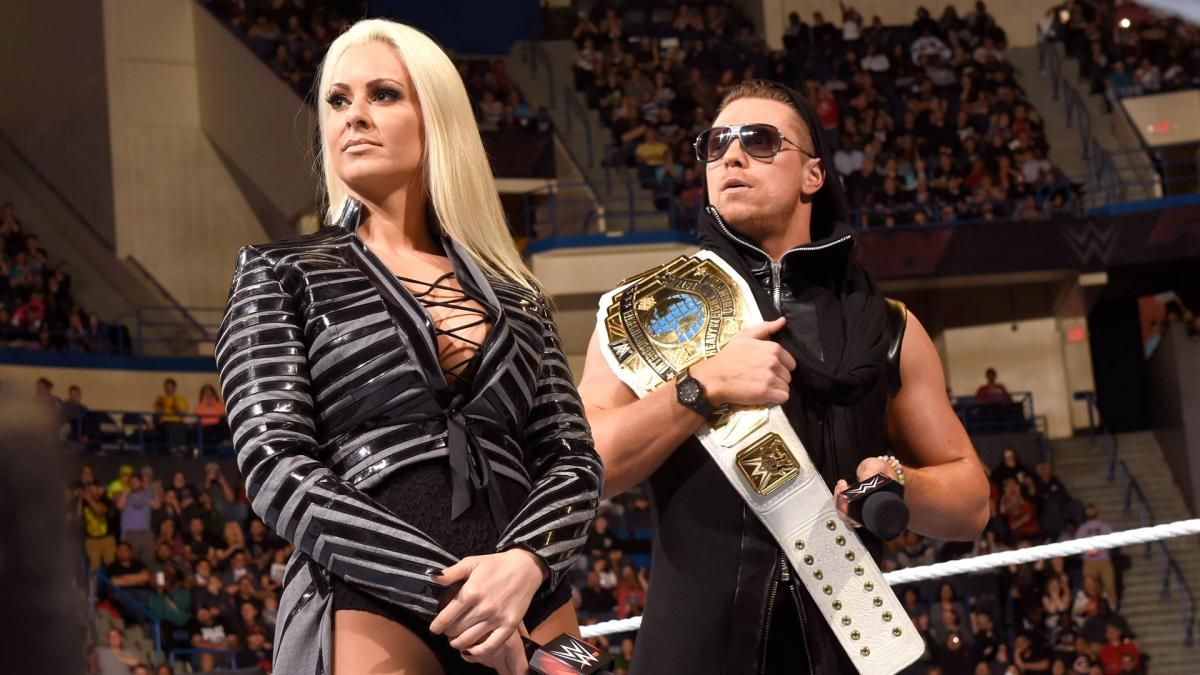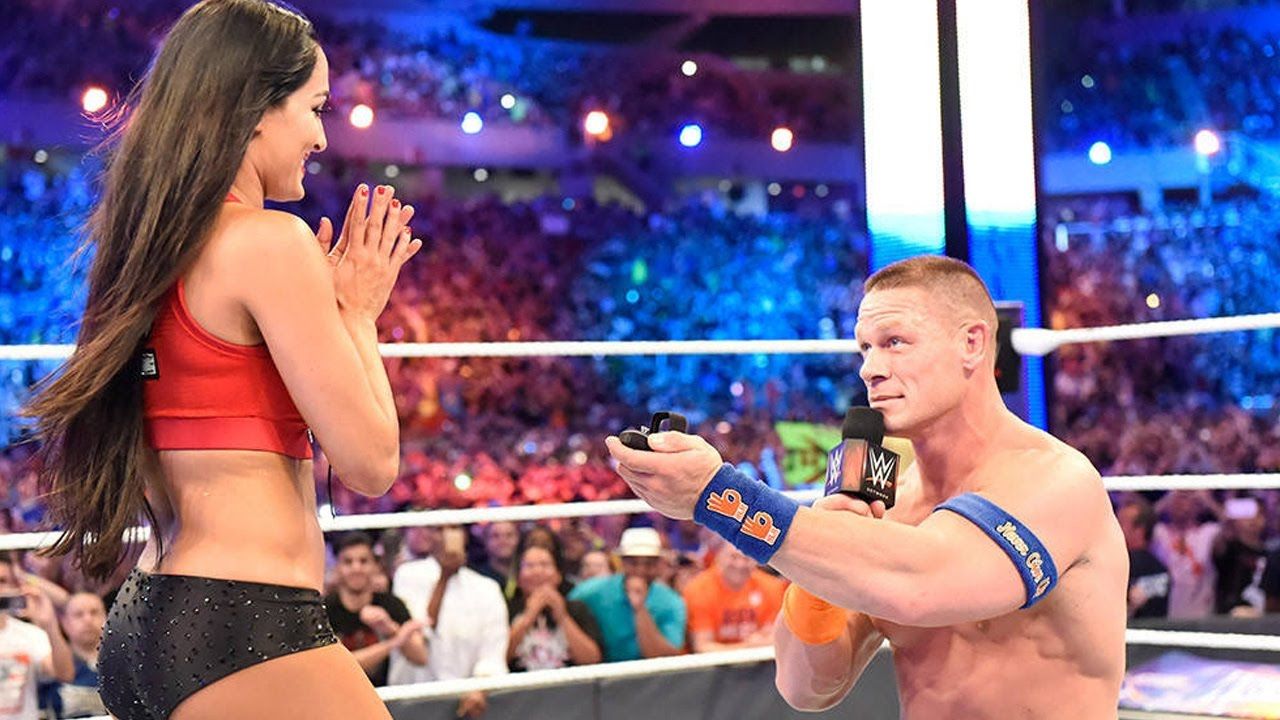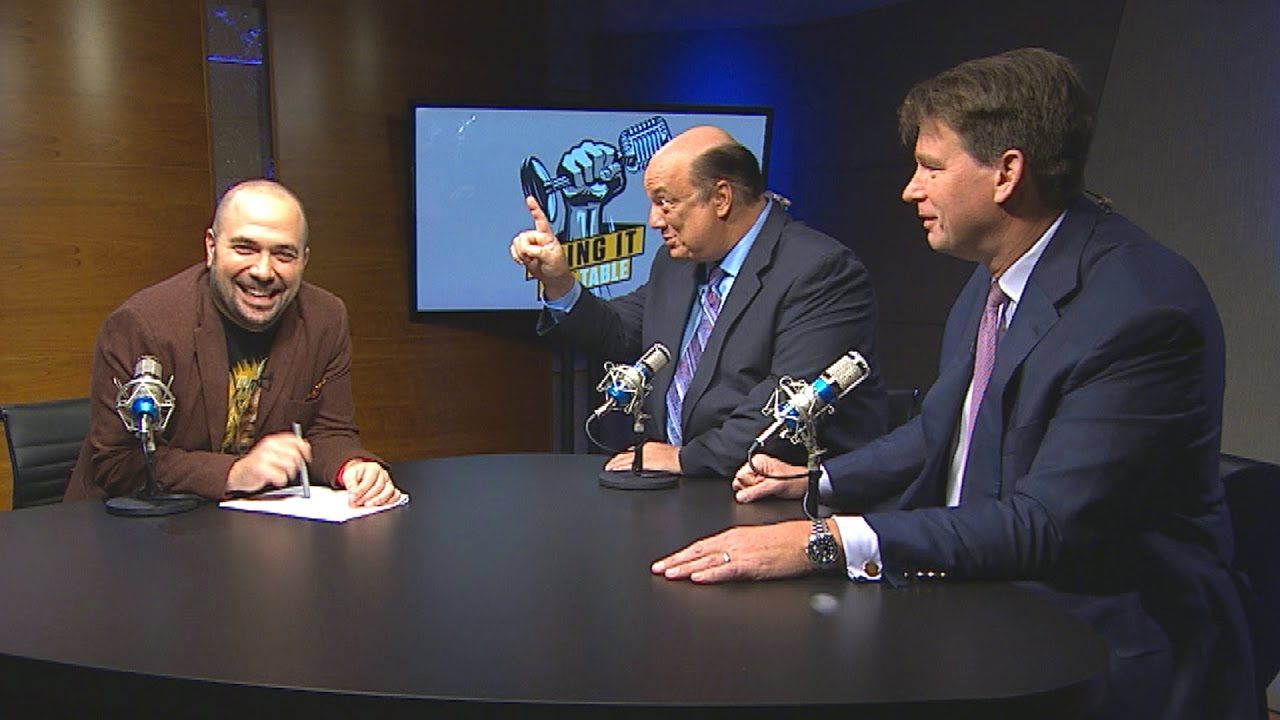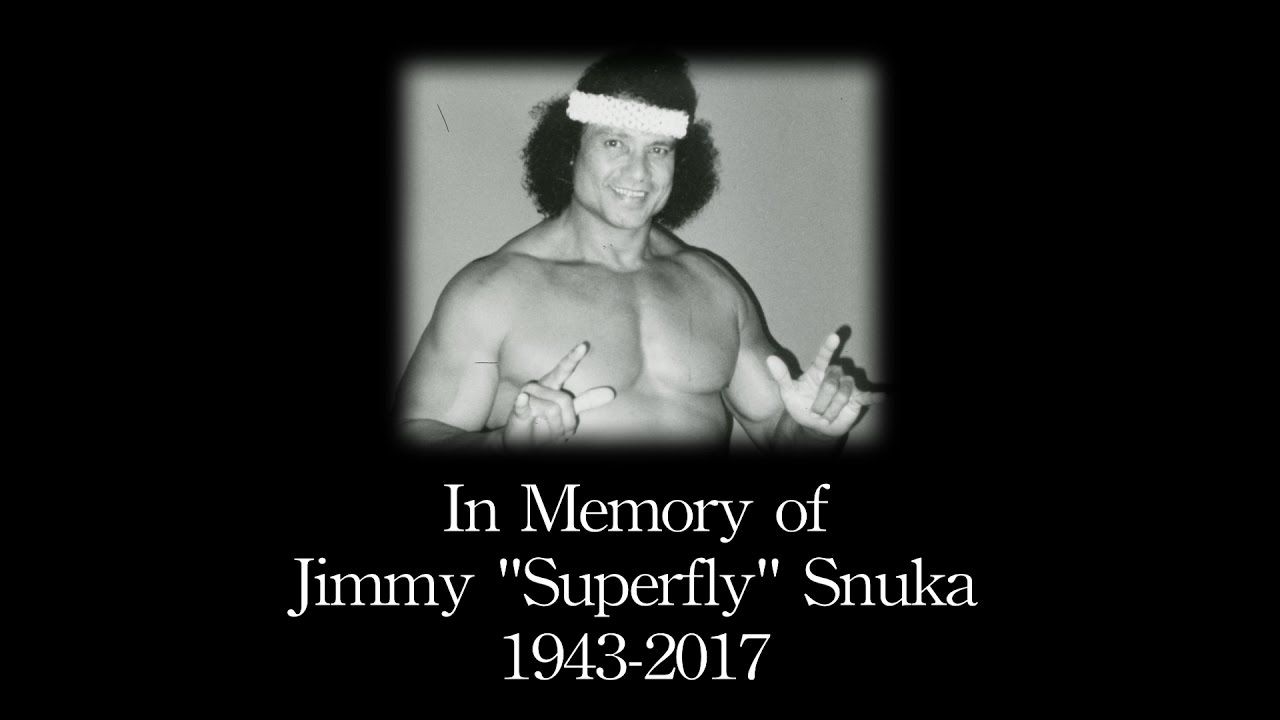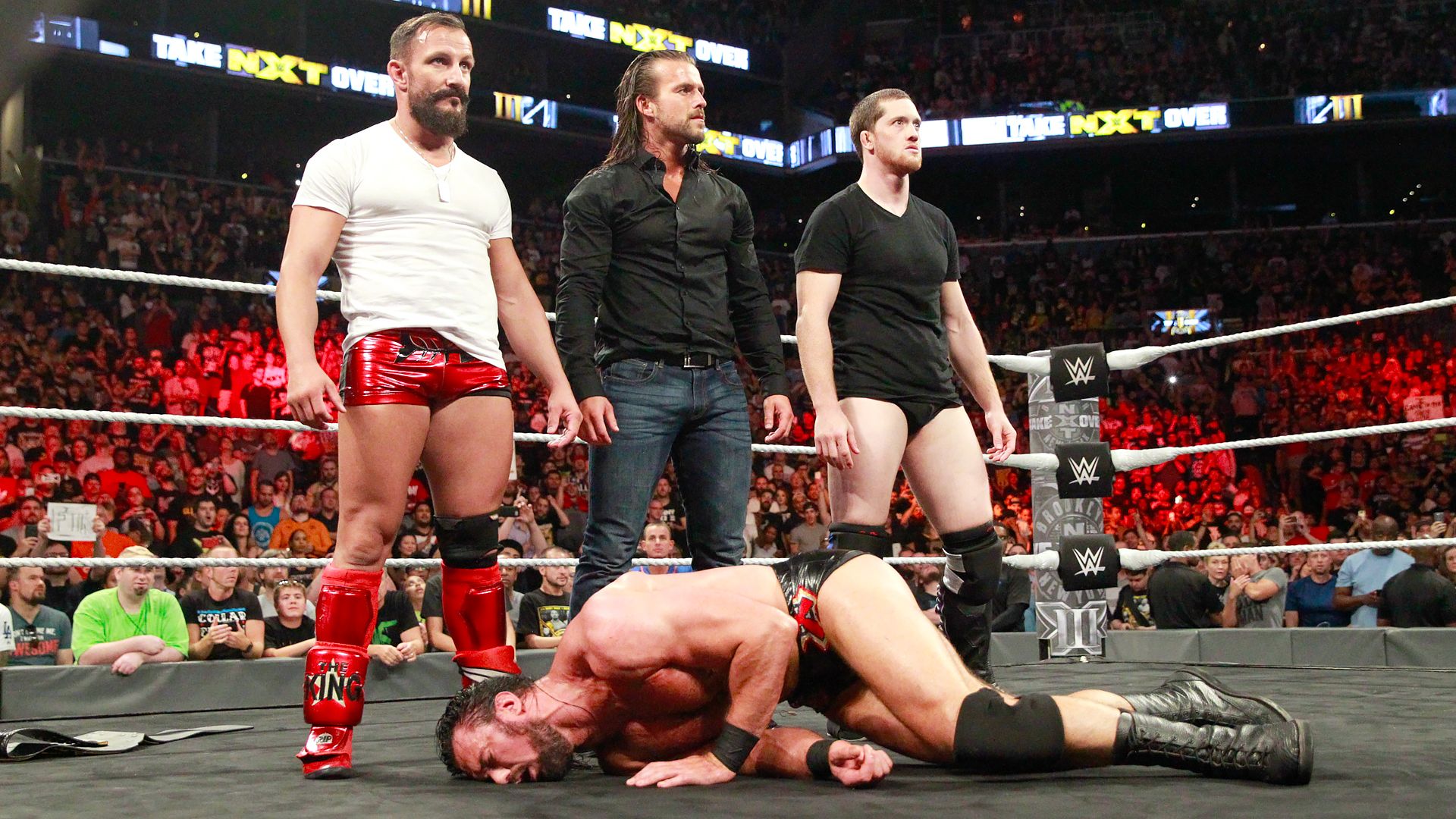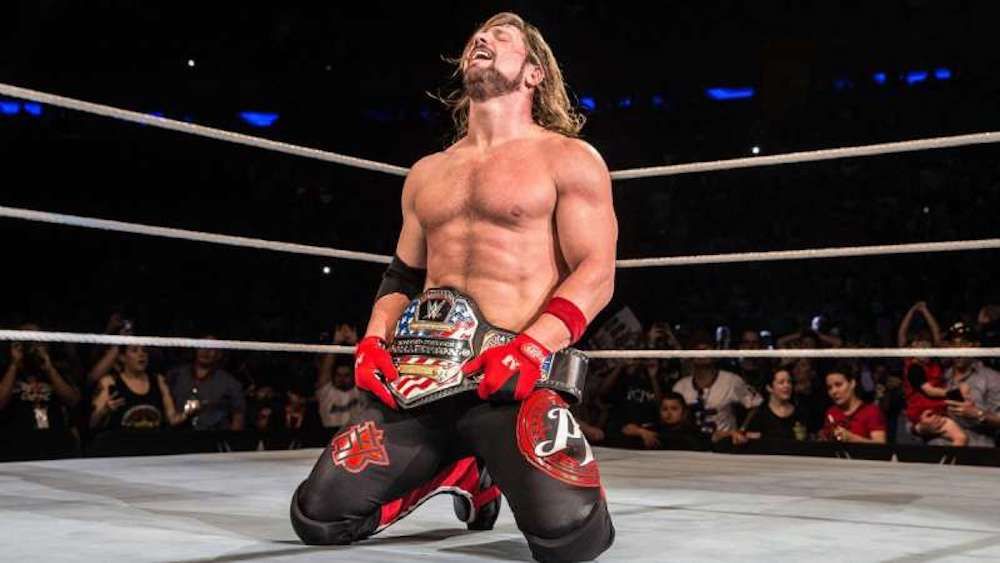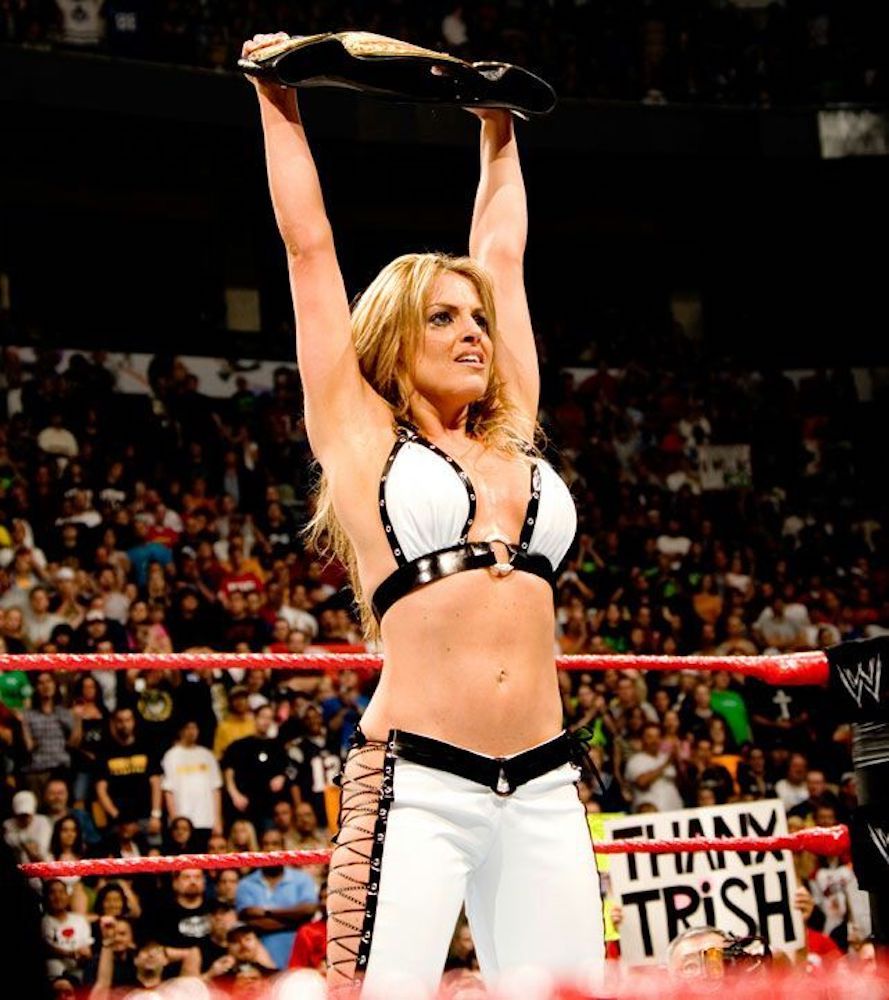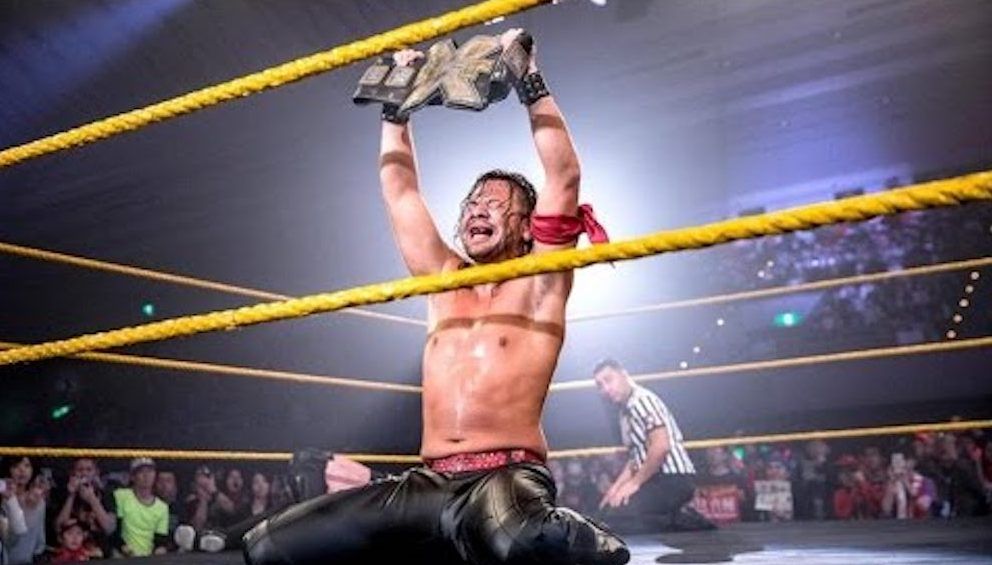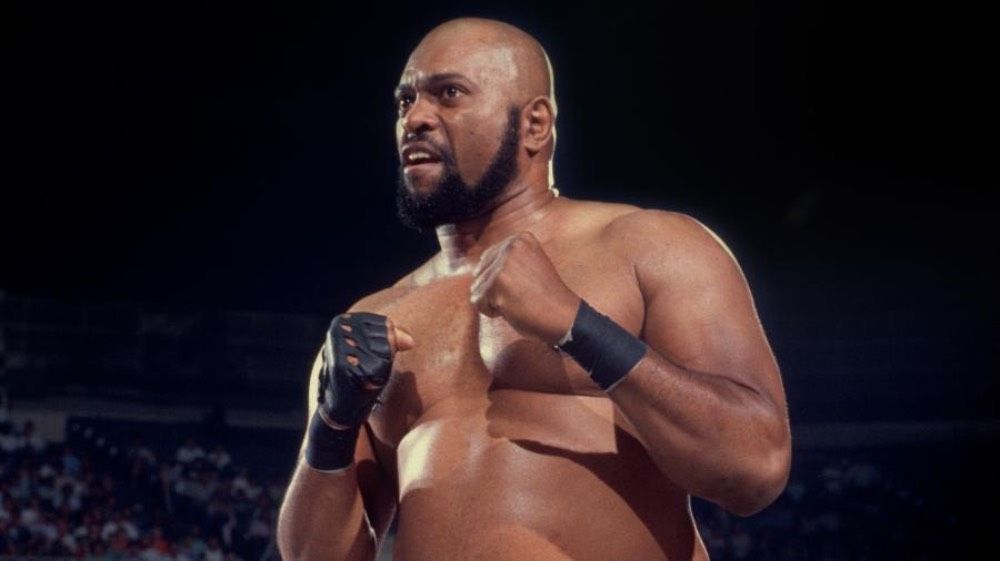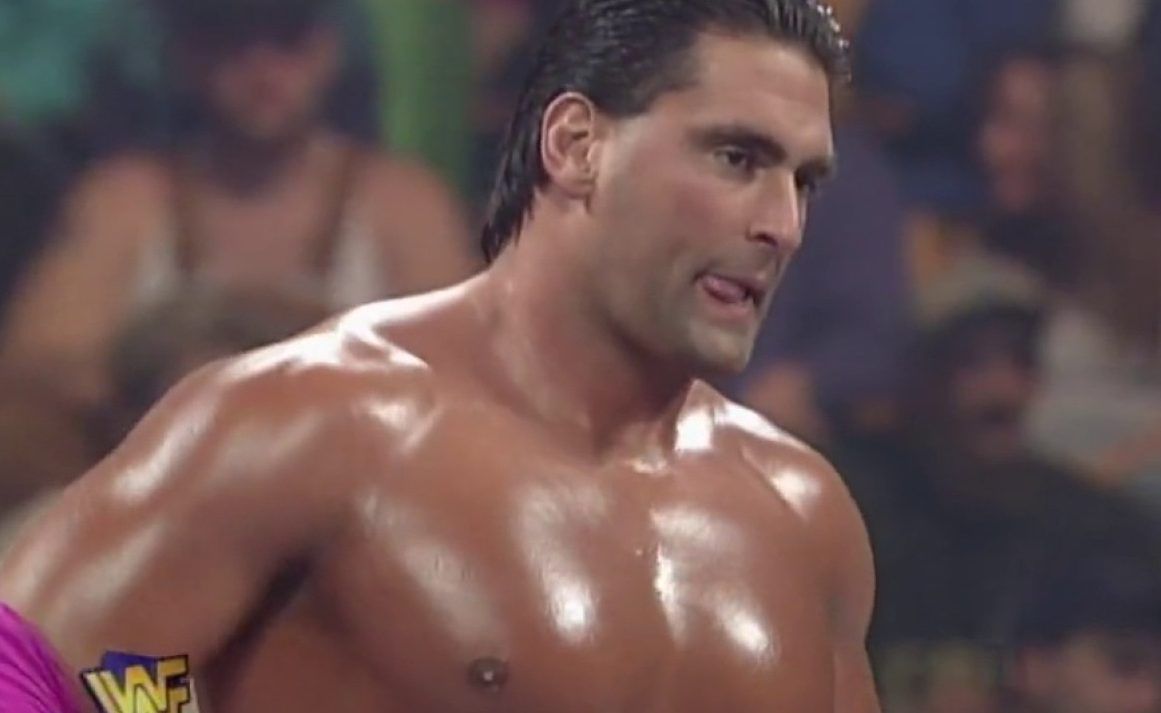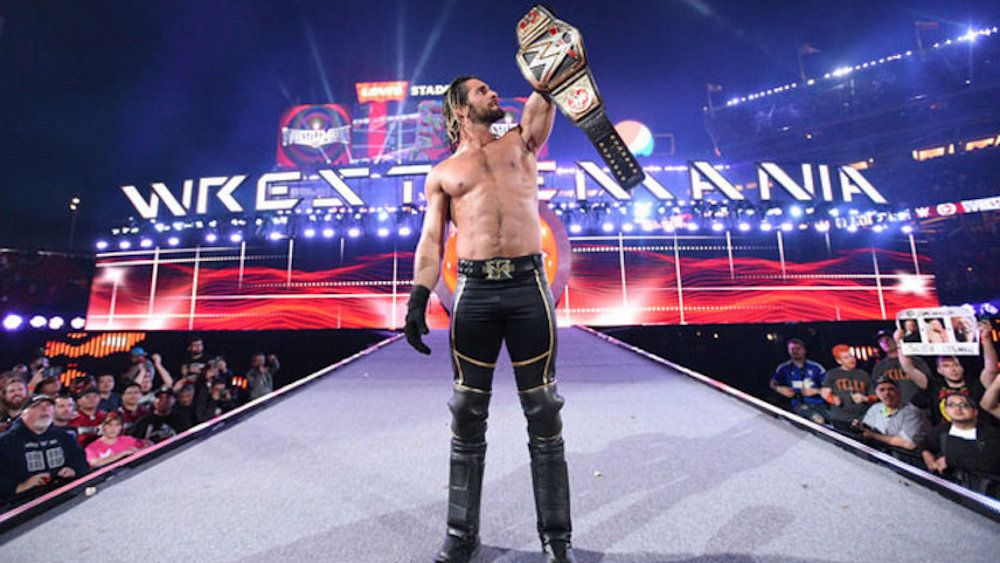Vince McMahon may be a very rich, powerful, and successful man, but as the owner, chairman, and creative leader of the WWE, he is also a very strange, many would say out-of-touch man. As such, he has some of the weirdest rules that everyone in his company should follow, lest they get dressed down, sanctioned, or even fired, and a lot of these rules happen to be unwritten.
A lot of Vince's written rules have been broken so blatantly in recent years – one need look no further than Brock Lesnar to see how often WWE ignores the established rule that a champion should defend their title at least once every 30 days. But what about those unwritten rules, such as Americans always being the good guys in feuds against foreign wrestlers, wrestlers maintaining kayfabe within WWE programming even if it's long been considered dead, and WWE rebranding wrestlers, or demographics of wrestlers to give them an identity unique to the company?
You better believe those unwritten rules have been broken quite a few times, and this list will show us 15 examples of such, mostly covering recent years, but also including a few old-school examples from previous "eras" of WWE programming.
16 15. The Miz's Must-Hear Worked Shoots
Not too long ago, The Miz's WWE Championship reign was a distant memory. Now, many fans are demanding that the reigning Intercontinental Champion get another crack at the main event. And it's all because there isn't anybody who's owned it on the mic like he has since 2016, outing uncomfortable truths that include, but are not limited to: Daniel Bryan's daredevil style of wrestling being partially (or as Miz sees it, fully) responsible for his early retirement, Dean Ambrose and Renee Young being in a real-life relationship, John Cena looking hypocritical by going Hollywood when he called The Rock out for it just a few years back.
Granted, all of those comments were part of worked-shoot angles or promos, and that too applies to Miz's latest outburst, where he complained about being overlooked by being put on the pre-show and not getting to defend his IC title at SummerSlam. But WWE's willingness to let The Miz's words hit so close to home so often shows them breaking one key unwritten rule – don't introduce real-life facts or opinions to the world of kayfabe, and keep the worked shoots to a minimum.
15 14. Jack Swagger And Zeb Colter: All-American Villains
We saw it with Hulk Hogan, Jim Duggan, John Cena, and so many other American wrestlers who have conquered their fair share of foreign heels – America is always the good guy when it comes to wrestling feuds. WWE has been relying on this trope for decades, and while one may have thought the age of the foreign heel serving as a foil to these American heroes is as outdated as mullets and Zubaz, what do you call WWE Champion Jinder Mahal, then?
Four years ago, however, WWE tried to revitalize Jack Swagger's career by repackaging him as a different kind of All-American – a xenophobic villain who, together with manager/mouthpiece Zeb Colter, feuded against Mexican babyface Alberto Del Rio and his personal ring announcer Ricardo Rodriguez. Finally, the WWE Universe got to see America playing the bad guy for once, though the feud didn't really do much in the end, as Swagger lost his push due to a marijuana arrest, and Del Rio was far better as a heel than he ever was as a good guy on WWE television.
14 13. AJ Lee Uses The "W" Word
WWE's branding of its female wrestlers and personalities pre-2016 was once so aggressive that calling them "women," "girls," or "ladies" was verboten on television – everyone referred to them as Divas, lest they get a tongue-lashing from Vince McMahon backstage (or through the headphones). But from late-2013 to early-2016, announcers and wrestlers were using the once-forbidden "W" word more often, and we believe it's all thanks to AJ Lee's "Pipebombshell" from the August 26, 2013 episode of RAW.
In what many see as the distaff equivalent of CM Punk's 2011 "Pipebomb" promo, Lee essentially buried the entire Divas Division, dissing them as vapid and talentless, or in her words, "interchangeable, expendable, useless women." And she repeated that "W" word a few more times in that promo, with Jerry Lawler doing the same once it was over! That was probably the time when WWE realized how asinine it was to insist female talents always be called "Divas," though it would be three more years before the term "Divas" was officially, and thankfully retired.
13 12. Jon Stewart Turns Heel On John Cena
It doesn't matter if they're clueless about the product, and even go as far as calling WWE's SummerSlam pay-per-view the "Summerfest." (We're looking at you, Jeremy Piven.) WWE will always insist on getting celebrities involved with the product, and will invariably book them as good guys. Every now and then, you'd get someone like Stephen Amell or Jon Stewart who's a legitimate fan, but far too often we've seen clueless celebs treated like royalty in the name of cross-promotion, and always written to side with the babyface wrestlers.
Speaking of the former Daily Show host, WWE broke its own rules when they had Stewart interfere in John Cena and Seth Rollins' title vs. title match at SummerSlam 2015, as his chair shot on Cena allowed the heel Rollins to keep his WWE World Heavyweight Championship and win Cena's U.S. Championship. Although many fans would have related with Stewart's reasoning – he wanted to stop Cena from breaking Ric Flair's record of 16 world championships – the fact is that he was booked to turn heel after initially feuding with Rollins, making him a rare celeb to play the bad guy on WWE programming.
12
11 11. Letting Couples Work Together On One Brand
So let's see how things played out in last year's brand draft: Big Cass works on RAW, Carmella goes to SmackDown as "Ms. Irrelevant," i.e. last draft pick. Emma assigned to RAW after returning from injury, as erstwhile beau Zack Ryder is on SmackDown. Injured Paige on RAW, disgruntled Alberto Del Rio on SmackDown. Alexa Bliss called up to main roster, Buddy Murphy left behind on NXT. So why do we have The Miz and Maryse, John Cena and Nikki Bella, and (presumably begrudgingly) Rusev and Lana working together on the same brand?
For some reason, WWE likes splitting couples apart and placing them on different brands. It's a policy that makes absolutely no sense, as this isn't a case of parents splitting a teenage couple apart because of your average television or movie trope. This is a case of adults having relationships within the same company or business. But it would seem that WWE would rather have couples on separate brands...unless they're in the main event (Cena and Nikki, at least until Cena's "free agency") or actually married (Rusev and Lana, Miz and Maryse, Mike and Maria Kanellis).
10 10. John Cena Proposes To Nikki Bella Without Issue
Speaking of John Cena and Nikki Bella, WWE's ultimate power couple not named Triple H and Stephanie McMahon broke one notable unwritten WWE rule when Big Match John proposed to the Fearless One at WrestleMania. And that rule is: every on-air wedding proposal or ceremony has to end in absolute chaos, with a run-in or two to ruin the moment. This usually applies to kayfabe proposals and weddings, but let's be honest – we get that John and Nikki are legitimately engaged, but is there anyone out there who doesn't think their on-air engagement wasn't staged in one way or another?
Instead of having The Miz and Maryse rain on their parade, what WWE did at WrestleMania 33 was to have them face Cena and Nikki in a mixed tag team match, with the predictable result of the good guys going over. That eliminated any possibility of Mr. and Mrs. Mizanin running in to ruin Cena's proposal to Nikki, but in the end, it was all about one thing when it came to WWE's decision to let Cena propose without issue – mainstream media exposure.
9 9. Kayfabe-Breaking Programming
In the mid-'90s, this would have been the ultimate act of heresy. Who would have thought that the angry cowboy called Justin "Hawk" Bradshaw, ECW owner Paul E. Dangerously, and Maryland teen Peter Rosenberg would be co-hosting a show over 20 years later, where they'd dissect hot-button pro wrestling issues like sports analysts do with "legitimate" sports? Who would've envisioned WWE stars past and present casually trading war stories over dinner, or heels and faces riding in the same car and documenting their adventures and misadventures on the road?
We were referring above to Bring it to the Table, Table for 3, and Ride Along respectively, all staples of the WWE Network. While WWE likes to maintain the illusion that kayfabe is alive in some way, shape, or form, these programs and others are clear signs that WWE is cool with admitting that their talents no longer have to pretend 24/7 that they hate each other. Of course, there are times when some WWE Superstars may have legitimate heat with each other, but isn't that the case in virtually every office around the world?
8 8. The Late Jimmy Snuka Gets Honored
Normally, when WWE declares you persona non grata for one reason or another, the company begins pretending that you never existed. Chris Benoit is the obvious example here, but you also had Hulk Hogan getting almost all references to him, including his Hall of Fame page, removed from the WWE website after his leaked racist tirade. And when Jimmy Snuka was arrested in 2015 for his involvement in a three decade-old case where he allegedly beat his girlfriend to death, the company did something similar, distancing itself as far as possible from the Superfly.
But that wasn't the case when Snuka died earlier this year at the age of 73, after months upon months of physical deterioration caused by stomach cancer and neurological issues. Probably because his daughter Tamina still works for the company, WWE saw it fit to air a tribute video to Superfly on the RAW immediately following his death. This wasn't the most popular decision for a lot of fans, though WWE may have also taken into account the fact that he was never actually found guilty in Nancy Argentino's 1983 death.
7 7. Letting Indie Wrestlers Keep Their Familiar Names
We've seen it happen so many times before, much to the chagrin of independent wrestling fans, a lot of whom still insist on using those original indie names when referring to these guys. Claudio Castagnoli and Kevin Steen – their real names – became (Antonio) Cesaro and Kevin Owens, respectively. Tyler Black and Jon Moxley became Seth Rollins and Dean Ambrose, El Generico was unmasked and became Sami Zayn, Bryan Danielson got his real name inverted to Daniel Bryan. (Heck, at least he didn't become "Lloyd Bonaire," which REALLY would have sucked.)
Thankfully, there haven't been too many indie darlings getting name changes as of late. Sure, we saw Tommy End become Aleister Black and Big Damo become Killian Dain, but recently, we also saw Bobby Fish, Kyle O'Reilly, and now Adam Cole keep their ROH ring names upon their NXT debuts. It's a refreshing change, and proof that WWE is lightening up when it comes to their notorious tendency to add their own branding to established indie stars.
6 6. WWE Recognizes AJ Styles' US Title Win On House Show
Traditionally, what happens on house shows stays on house shows. As far as the WWE Universe is concerned, WWE Live events are considered non-canon, and that's the reason you never seem to see titles change on house shows. If they do change, they usually change back to the previous titleholder on the next leg of the tour, allowing everything to remain the same the next time WWE returns to TV. That's why a lot of fans were shocked when AJ Styles won the United States Championship from Kevin Owens at a house show, with WWE recognizing the title change on the very next SmackDown Live.
Yes, you read that right – house shows may be thought of as chances for WWE to experiment with storylines, character tweaks, and the like, or a chance to showcase an ongoing feud without disrupting the status quo. But sometimes, the status quo does get disrupted, so you might want to brace yourself for some unexpected developments the next time you attend a WWE Live event. Like a title change, for instance.
5 5. Trish Stratus’ Farewell Match
Although we are aware that Trish Stratus did wrestle a few times for WWE after officially retiring in 2006, we, like many others, recognize her “farewell match” as the time she defeated Lita to win her record seventh WWE Women’s Championship at Unforgiven. Everyone knew Trish was retiring, as she herself had confirmed it ahead of Unforgiven, but WWE chose to let her go out with a bang, and do so in her own hometown of Toronto.
With that farewell match at Unforgiven, WWE hit two birds with one stone, breaking a pair of unwritten rules that remain in force up to this day. The first, and completely understandable rule is that wrestlers who are leaving (joining another company, retiring, etc.) always have to put over their final opponent. The second, and completely nonsensical one, is that the hometown guy or girl always loses, especially if he or she is a babyface. Seriously, WWE. We just don't get that one.
4 4. Nakamura Regains NXT Championship In Japan
Then again, there are some who believe that fans make too much of a big deal about WWE jobbing out Superstars in their hometown. The folks at 411Mania put together a list of prominent hometown victories from WWE's past and present in an effort to debunk it all as a myth, and we've got to agree with them in a way – WWE may have a thing for making hometown heroes lose to build up heat for the heels that beat them, but that's not always the case. One very recent case in point? SmackDown Live's very own Shinsuke Nakamura.
Late last year, Nakamura and Samoa Joe were in the middle of a heated feud for the NXT Championship, and at TakeOver: Toronto, the King of Strong Style was beaten by the Destroyer in his first title defense. But it wasn’t more than a few weeks later that Shinsuke won the title right back from Joe, doing so in his home country of Japan at an NXT live event (another unwritten rule broken), with the match getting televised just a few days later.
Now if only Shinsuke could face Jinder Mahal in India and beat him for the WWE Championship...
3 3. Bad News Brown Hates Everybody
We now move on to the oldest example on our list, a throwback to the time when WWE booking was as simple as this: all faces are automatically friends with each other, just like heels are always aligned to the same evil cause, regardless of who manages them. Nowadays, it's not uncommon to see tension between two babyfaces or two heels, but back then, there was only one exception to the old, simplistic rule of booking – Bad News Brown.
Years later, we'd see "Stone Cold" Steve Austin get over as an antisocial redneck who gave Stunners to everyone, but the late Allen Coage, aka Bad News Brown, was ahead of his time. Twice we saw him walk out of a traditional Survivor Series match because he wasn't getting along with his fellow heels, and the reason was simple – he hated everybody, even bad guys like himself. Unfortunately, Bad News wasn't long for the WWE due to several factors – his age, his alleged attitude, and his claim that Vince McMahon reneged on his promise to make him WWE's first African-American world champion.
2 2. Salvatore Sincere Gets Outed As A Jobber
In 1997, Salvatore Sincere was the burgeoning Attitude Era's equivalent to Curt Hawkins, as he lost to everybody despite having an established gimmick. In Sincere's case, he played the role of an insincere (because irony) Italian-American, which is barely better (or barely worse) than being a "Fact Man," or whatever Hawkins is supposed to be. And while everyone knew Sal was a patsy, WWE wasn't supposed to acknowledge his lack of success, per the increasingly-tenuous laws of kayfabe. And they certainly weren't supposed to do so while using industry jargon.
That is, until Sincere was put in a feud against Marc Mero, who openly, and actually referred to him as a jobber, and revealed his real name to be Tom Brandi. What happened next was a poor rehash of the Barry Horowitz "jobber gets lucky" storyline, and yet another attempt for WWE to push Sable at her then-husband's expense. While Brandi did get to use his real name, he still kept his stereotypical gimmick upon the name change/face turn, and was back to job duty soon after picking up those fluke wins.
1 1. Heels Winning The WrestleMania Main Event
Even with the increasing prevalence of TV series and movies with unhappy endings, most wrestling fans want their WrestleMania to end on a high note, with the babyface (provided he's not named Roman Reigns) emerging victorious over the hated heel. WrestleMania, after all, is the closest thing WWE has to a true season finale, and the company wants to send the fans home happy. That's usually the case, but not always, as there have been a few WrestleManias where a heel had ended up winning the main event.
To wit, we saw Triple H win it at WrestleMania 2000, The Miz win at WrestleMania XXVII, and Steve Austin turn heel toward the end of his match against The Rock at WrestleMania X-Seven. Most recently, we saw Seth Rollins cash in his Money in the Bank contract at WrestleMania 31, but this time, fans loved it when the heel won the 'Mania main event. And why not, as Rollins essentially prevented Roman Reigns from winning the WWE World Heavyweight Championship from Brock Lesnar.


